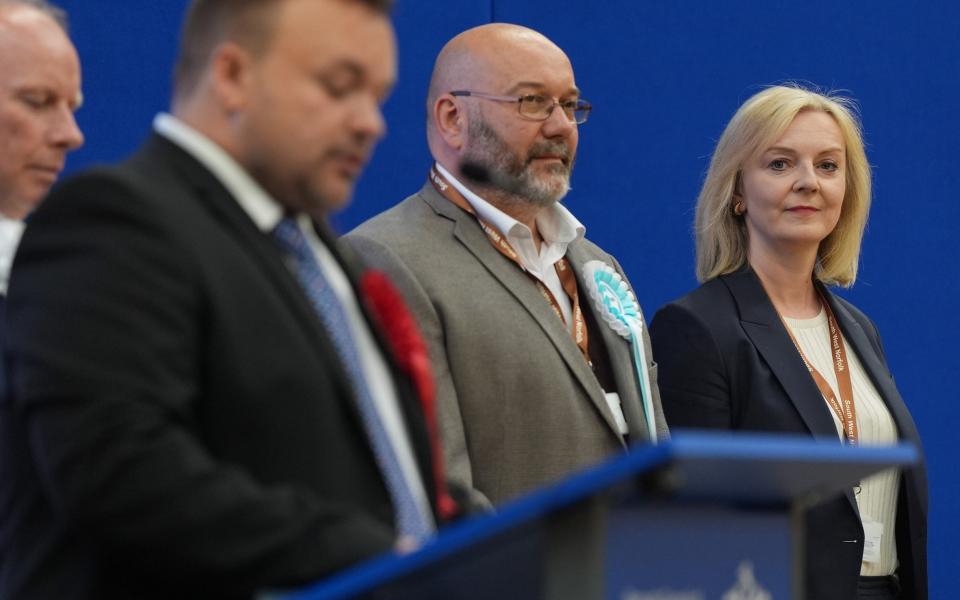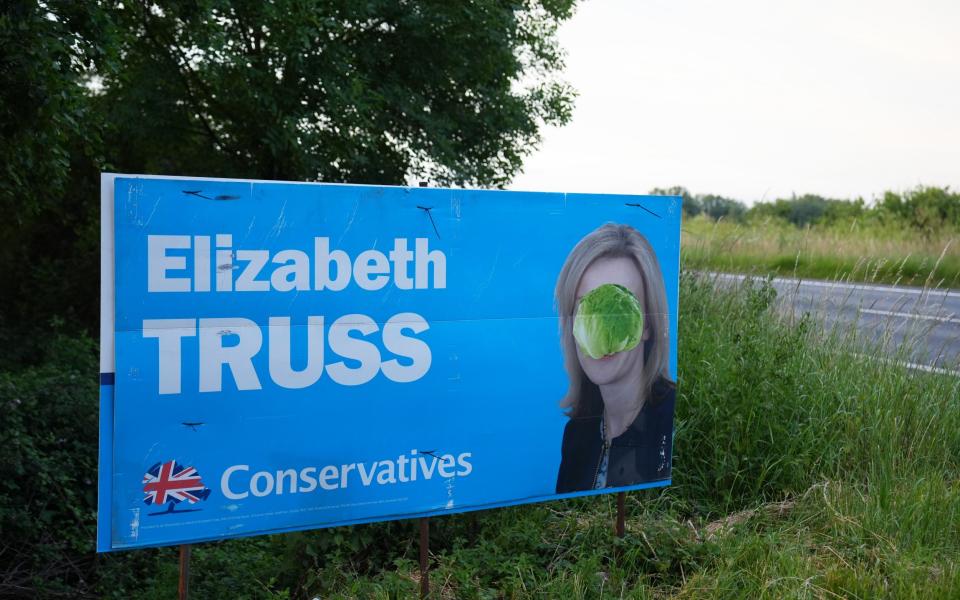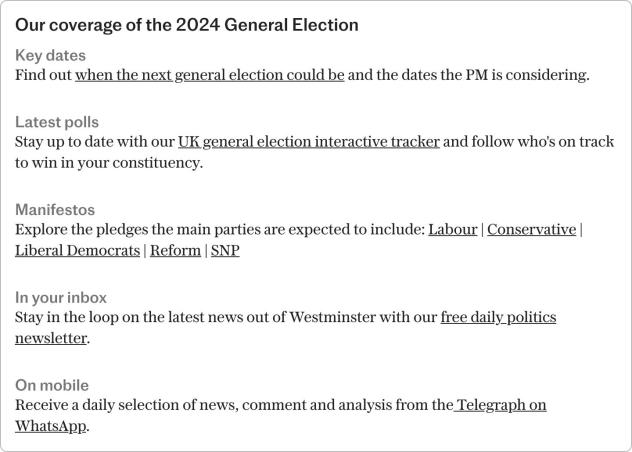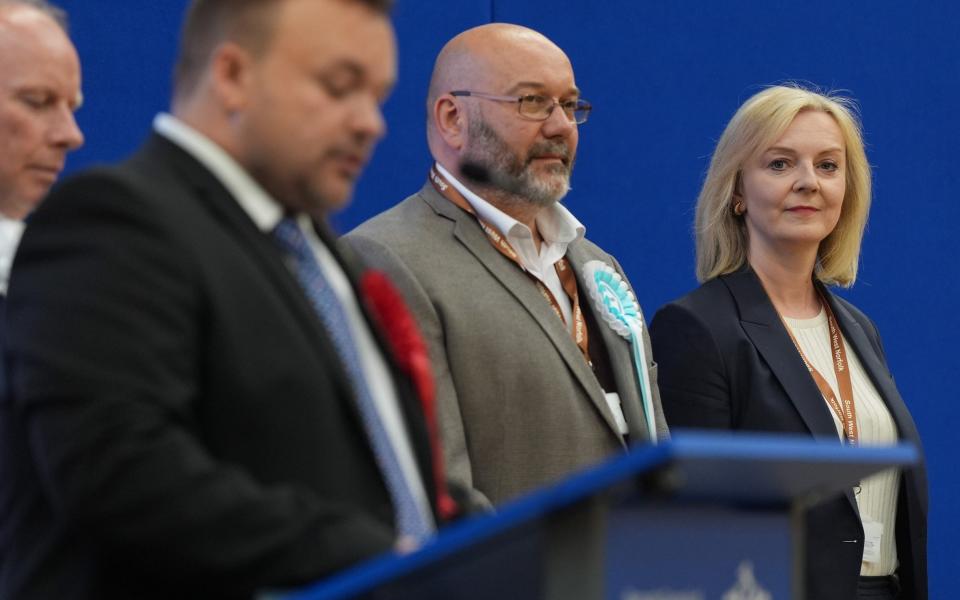The end for Liz Truss came not with a bang, but with scarcely a whimper. Eight and a half hours after polls closed, a result had not been declared in South West Norfolk, and the former Prime Minister had still not yet appeared at Lynnsport, the labyrinthine leisure centre in Kings Lynn where her fate was to be decided.
When the declaration finally made just before 7am – more than an hour later than expected – it was met with whoops and cheers from the Labour side of the stage. A Conservative majority of 26,192 in one of Britain’s safest seats reduced to rubble. Forget Portillo – in years to come, will you be able to say you were awake for Truss’s fall?
It was a heavy night of high-profile casualties for the Tories, but no loss is as shocking as the ousting of the former Prime Minister in a seat that has been true blue since 1964. Shortly after 6:30am, her rival candidates gathered on stage in the vast sports hall in Kings Lynn for the declaration. A bleary-eyed crowd of media and council officials assembled and a hush descended. The room waited in eerie near-silence for Truss to appear. It was suggested she was waiting outside in her car.
A senior council staff member said, “We just have to wait for one candidate,” at which point some members of the crowd commenced a deliberately slow clap. There was a joke about the lettuce that outlasted Truss’s premiership, which failed to raise a laugh. Online, speculation about Truss’ potential loss had reached fever pitch. “It felt like a very, very long time on that stage,” said Terry Jermy, the newly elected Labour MP, afterwards.
Her beleaguered team stood to one side of the stage, their gaze fixed, their blue rosettes pinned proudly to their chests. They were monosyllabic with the media and had declined to answer when asked when their candidate would arrive. People glanced nervously at the open door. The former Prime Minister remained a no-show for another agonising 10 minutes.

When she finally appeared in a sombre navy trouser suit and devoid of rosette, seconds before the declaration at 6.48am, Truss stood blinking, her face impassive, her arms rigid by her side. When it was announced that she had narrowly lost her seat, by 630 votes, she looked resigned. She did not give a speech, and slipped out almost as quickly as she had arrived.
She showed her team far more emotion than she had shown on the podium. “Thank you. You’ve been brilliant,” she said, hugging each one in turn. “We’ve fought the fight.” She was accompanied by one of her two teenage daughters, who walked with her from the door to her car. Truss has previously spoken of how difficult the criticism of her political career has been for her daughters. “I tell them not to read the papers and not to look at Twitter,” she said earlier this year.
Perhaps Twitter is best avoided today; social media is awash with glee that Truss has lost her seat and, yes, more lettuce jokes, including one from Nigella Lawson. Truss’s loss is emblematic of the malaise at the heart of the party, the anti-Conservative wave that has washed Britain red.
In losing to Labour, Truss became the first former occupant of No. 10 to lose their seat since Ramsay McDonald lost Seaham in 1935. No Tory politician is a better illustration of the rollercoaster of 14 years of Conservative rule – or the party’s demise – as Truss, who burst onto the scene with a staggering rise and has now experienced just as dramatic a fall.

A young Liz Truss turned her focus to politics after studying PPE at Oxford – where she was a card-carrying Liberal Democrat – and embarking on a career in London first at Shell and then at Cable and Wireless.
She unsuccessfully ran twice for Parliament – losing in Hemsworth in 2001 and Calder Valley in 2005 – and was elected to be a Tory councillor in 2006 for Greenwich before her breakthrough came in the run-up to the 2010 election, when she was parachuted into the Tory safe seat of South West Norfolk in a Conservative diversity drive.
A group of local members dubbed the “Turnip Taliban” – including James Bagge, who last night stood against Truss as an independent – attempted to deselect her on the basis of her affair with the Tory MP Mark Field. She survived and won the seat with a majority of 13,861. A promotion to Education Secretary and Environment Secretary followed, then a short-lived stint as Justice Secretary. She was appointed Foreign Secretary by Boris Johnson in 2021.
But it is her chaotic 49-day stint in Downing Street that will define her career – she is the shortest-serving Prime Minister in British history and is blamed for crashing the economy with her disastrous mini-Budget. (That, and her viral speech about cheese at the Conservative party conference in 2014. “We import two-thirds of our cheese. That. Is. A. Disgrace.”) She attempted to win back the right of the party with her memoir, Ten Years to Save the West, released earlier this year.
It is not clear at what point in the early hours Truss realised the writing was on the wall. When counting began shortly after 10pm, the mood was quiet and sombre in anticipation of a long night ahead. And it was a very long night – people were still filing out of the next-door gym when the election crew arrived, and by the time the results were announced, dawn had broken and the early morning gym-goers had arrived with their kit bags and protein shakes.
But as the ballot papers piled up, so did the tension, and the room hummed with anticipation. For hours, all anyone could say was it was “too close to call.” The Conservative stacks were indistinguishable from those of Labour, and it became clear that the result would be closer than anticipated.
The other candidates spoke of Truss’ lacklustre campaign and plummeting local popularity. She has reportedly kept a low profile, seldom visiting her own constituency, despite being its MP for 14 years. Her campaign posters were allegedly defaced, with “TRUMP” written on one in reference to Truss’ support of the former US president’s bid for re-election.

“A lot of people are really disgruntled,” said Josie Ratcliffe, the Lib Dem candidate and a local councillor. “People here are less affected by the economic issues of her premiership – they’re retired and own their homes. It’s not that that’s swung it. A lot of it is local disappointment.
“She has this reputation for just coming in for a press op to meet a pre-arranged group and then she’s disappeared. She’s been around a bit more over the past six weeks, but not the past five years,” she adds.
When she had shown up, she was reportedly always flanked by her security guards and transported by two beefy black SUVs. Locals had reported that she often walked right past constituents trying to speak to her without even saying hello. Having driven around her constituency on the eve of the election, there were far more posters and banners up for James Bagge, the disgruntled ex-Tory who ran against Truss as an independent, than for Truss herself.
It seemed her constituents were united in an attempt to oust her. Reform did well, surprising even the party’s own candidate, with 9,958 votes. Bagge, 71,one of Truss’ original adversaries, was optimistic about his chances. His agent said: “It feels quite seismic… it feels like something’s shifting.” In the end, Bagge came in fourth place, securing 6,282 votes – not enough for the victory he had hoped for, but enough to have chipped away at Truss’ majority. In the end, the groundswell of anti-Truss feeling in South West Norfolk was so dramatic that Bagge estimated 90 per cent of constituents wanted her out.
Following the result, Truss spoke only to the BBC for a brief post-mortem, and said the reason she lost was because the Conservatives “haven’t delivered sufficiently on the policies people want,” such as lowering taxes and reducing immigration. After that, she slipped away, another Tory stronghold in tatters.

EMEA Tribune is not involved in this news article, it is taken from our partners and or from the News Agencies. Copyright and Credit go to the News Agencies, email news@emeatribune.com Follow our WhatsApp verified Channel





